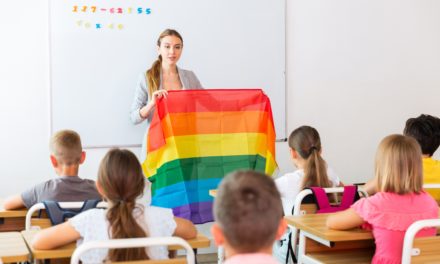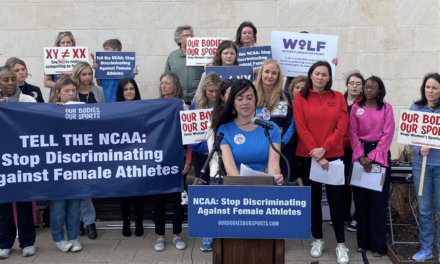The Iowa Legislature passed a school choice law, House File 68, the “Students First Act,” establishing an education savings account program that allows families to use public funds for educational expenses.
The bill gives parents educational freedom, helping them to provide schooling that’s best suited for their children.
Fittingly, the law was passed during National School Choice Week, where educators, parents, students and school choice activists have gathered across the country to support educational freedom.
The House passed the act by a vote of 55-45, with all Democrats and nine Republicans voting against the measure. The Senate passed the legislation with a vote of 31-18; three Republicans voted with Democrats against the bill.
Iowa Governor Kim Reynolds, who introduced the Students First Act in her Condition of the State address, signed the bill into law on Wednesday, January 24. When the act passed the legislature, she tweeted, “For the first time, we will fund students not systems!”
For the first time, we will fund students not systems!
Parents, not the government, can now choose the education setting best suited to their child regardless of their income or zip code.
Iowa has affirmed that educational freedom belongs to all! pic.twitter.com/eQPx7C5BH0
— Gov. Kim Reynolds (@IAGovernor) January 24, 2023
The De Moine Register reported on what the bill does:
The bill, House File 68, would phase in over three years and eventually allow all Iowa families to use up to $7,598 a year in an “education savings account” for private school tuition.
If any money is left over after tuition and fees, families could use the funds for specific educational expenses, including textbooks, tutoring, standardized testing fees, online education programs and vocational and life skills training.
The $7,598 per private school student is the same amount of funding the state provides to public school students and is expected to rise in future years.
The Iowa State Education Association (ISEA) lobbied against the measure. The organization represents over 34,000 educators and is a member of the National Education Association (NEA), a radical activist group.
The NEA supports abortion as a “fundamental right,” promotes transgender policies in schools and sexually confusing books for young children, and has stated, “Educators love their students and know better than anyone what they need to learn and to thrive.
ISEA President Mike Beranek bemoaned the passage of the bill, stating:
We are beyond disappointed at the votes tonight in the Iowa House and Senate giving nearly $1 billion in public taxpayer money to private schools in the first four years alone. The bill will divert essential funds from 92 percent of our student population and send the funds to just a select population of students admitted into private schools.
But groups that lobby for educational freedom disagreed. The American Federation for Children (AFC) CEO Tommy Schultz stated:
Today is a monumental one for children and families in Iowa. This vote commanded courage in the face of an entrenched status quo, and we are thankful so many of Iowa’s elected officials rose to the challenge their constituents issued when they made school choice a deciding factor at the ballot box last year.
Some who opposed the legislation said it means the government is supporting religion, violating the Constitution. But as the Focus on the Family resource Back to School – for Parents explains:
Funding a school choice program is not in violation of the First Amendment. The Supreme Court itself has ruled school choice options that support religious private schools do not violate the Constitution.
In Everson v. Board of Education, the Supreme Court decided it was constitutional for a New Jersey legislature to allow parents to be reimbursed for busing to private schools. The Court declared how fundamental a parent’s right to choose was in education. …
The Supreme Court famously ruled [in Zelman v. Simmons-Harris] that school choice that puts funds directly in the hands of parents is “true private choice, in which government aid reaches religious schools only as a result of the genuine and independent choices of private individuals.”
Others argue that school choice programs don’t help students. But AFC explains:
The case for school choice is overwhelming. The vast majority of credible evidence shows that school choice programs improve academic outcomes for not only the program participants but also the students in public schools; save taxpayers money; and reduce racial segregation.
School choice creates competition for public schools, as they must do better to retain students. They also offer parents options when their children’s school adopts harmful policies and promotes radical ideologies.
Related articles and resources:
Focus on the Family:
- School Choice for Parents
- Schools & Related Issues
- Thriving Student: What Your Child Needs for School Success
Daily Citizen:
- Educators, Parents and Students Rally to Support National School Choice Week
- Iowa, Utah, Oklahoma and Florida Move to Expand Educational Freedom
- LGBT Activists, NEA and Librarians Promote Annual ‘Transgender’ Reading Day in Schools
- The National Education Association Wants to Indoctrinate Children Across the Country
- NEA Subverts Parents, Says Teachers Know ‘Better Than Anyone’ What Students Need
Photo from Shutterstock.






